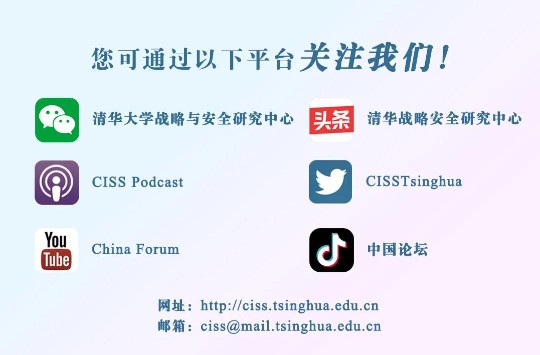编者按
8月6日,特朗普签署行政令,称手机移动应用程序TikTok和微信“对美国国家安全构成威胁”,将在45天后禁止任何受美国司法管辖的企业或个人与TikTok母公司字节跳动进行任何交易,或与腾讯公司及其子公司进行与微信有关的交易。次日,美国又推出所谓“净网”计划。美国的行径引起不少质疑和批评。中国论坛将相关反驳观点摘要如下,供读者参考。
一、美国围堵TikTok和微信,是出于自私自利的本国政治和经济因素考量。
1.美国打压中国科技公司主要为服务美国自身利益,针对他国搞“清洁网络”,其实是把国际互联网变成“美国单边网”。
“The United States wants to strangle TikTok, no matter what painful compromises the company makes. The real and the only reason is that it is a Chinese company…Preaching a “clean network” while having stains all over itself, the United States is turning the “Internet” into a “US-net” that only serves its own interests.” stated by Vice Foreign Minister Le Yucheng in his exclusive interview with China Forum.
(August 13, 2020, CGTN, Reviving the Cold War is Anachronistic)
Toute das vital to protect American’s data, the crackdown is in fact a depressing example of jingoistic opportunities, more likely to chill investment in America and stoke Chinese nationalism.
(August 8,2020,The Economist, TrumpianTikTok)
2.近期美国选举临近,美国政府方面挑起“TikTok”和微信事件,可能是想要通过这一系列针对中国事件来为特朗普政府的选举造势;另外美国鹰派正设法捆绑下一届政府对华政策,即使特朗普在11月竞选失利,仍能确保强硬的对华政策。
“It has become increasingly clear that this startling barrage of actions on China is driven by a coterie of China hawks who fear Trump’s loss in November and areseeking to bind the next president’s China policy,” said Evan Medeiros, a former top White House aide to Barack Obama.
(August 10, 2020, Demetri Sevastopol, Financial Times, China hawks latch on to Trump’s campaign against Beijing)
二、美国政府对TikTok和微信的封杀缺少法律依据,并有损言论自由。
It would be difficult for the government to stop people from using WeChat and TikTok — there are work arounds even if they’re removed from app stores — and it’s not clear the president has a legal basis to do so under the powers cited in the orders, experts said. Moreover, civil-rights groups said a ban raises First Amendment concerns.
“Selectively banning entire platforms harms freedom of speech online and does nothing to resolve the broader problem of unjustified government surveillance, including by our own government,” said Hina Shamsi, director of the American Civil Liberties Union’s National Security Project, in an emailed statement.
(August 8, 2020, Tali Arbel, Washington Post, Q&A: What’s up with Trump’s orders on TikTok and WeChat?)
三、美国政府和美国科技公司长期以来窃取公民隐私信息以及其他国家的安全信息,却“贼喊捉贼”,实属虚伪。
The absolute gall of the United States in condemning “apps [that] threaten our privacy, proliferate viruses, and spread propaganda and disinformation” is justs lightly too stunning to be laughable. Without exception, the United States engages in every one of these practices and violates every single one of these bullet pointed virtues of a Clean Internet.
There’s no reason to believe TikTok vacuums up more data than Facebook or any other app, whose owners, in the absence of any meaningful regulation, can do whatever they please with that information in perpetuity.
If we’re condemning the practice of duplicity in the name of national security, it’s odd to let Silicon Valley so entirely off thehook.
Facebook CEO Mark Zuckerberg was asked about a virtual private network the company deployed to smart phones to spy on children and adults in exchange for bribes — or, as Facebook put it, for “market research.” Zuckerberg denied that he had ever heard of this incident even as he told Congress, under oath, that the company doesn’t use cookies to track private information (it does).
Google’s Android phones comepre-installed with a long list of always-on, always-listening, always-tracking features that quietly surveil customers’ smart phone habits and locations: data increasingly handed over to police, and, as always, leveraged for targeted advertising by a mind-boggling range of companies.
Skype, one of the world’s most popular and trusted pieces of software, was infamously sabotaged by its American owner in order to let the NSA effectively spy on conversations it carried.
Pompeo calls for a “Clean Cloud” that can’t be “accessible to our foreign adversaries.” It would be interesting to hear Pompeo’s pitch for why other countries should instead turn to, say, Amazon’s AWS cloud service, used by the CIA and NSA.
(August 7, 2020, Sam Biddle, theintercept.com, The Filthy Hypocrisy of America’s “Clean” China-Free Internet)
四、微信禁令将损害中国的利益,但也会打击依赖微信作为交流和支付平台的众多美国企业,如苹果公司及耐克公司等。
A strict interpretation could force Apple and Google to remove WeChat and its Chinese sister app Weixin from their app stores, a move that would severely dent iPhone sales in China, such is the popularity of the app.
The US could also cut Tencent off from the computer chips, servers and US software that it relies upon to operate, lawyers warned. US companies such as Walmart, Coke and Nike that rely on WeChat to market and sell their goods would also behit. WeChat has largely replaced email in China and is one of two main ways of making mobile payments in China’s increasingly cashless cities.
(August 8, 2020, ChristianShepherd, Yuan Yang and Kiran Stacey, Financial Times, Tencent crackdown poses threat to US champions from Apple to Nike)
五、在美国推出“净网”计划的当天,国际互联网协会(ISOC)第一时间发布声明表示,美国政府的做法违背了互联网的初衷,违背了互联网全球互联、开放、去中心化的本质,违背了技术架构的公平普适性。
The Internet is a global network of networks, where networks interconnect on a voluntary basis with no central authority. It is this architecture that has made the Internet so successful.
Having a government dictate how networks interconnect according to political considerations rather than technical considerations, runs contrary to the very idea of the Internet. Such interventions will significantly impact the agility, resiliency, and flexibility of the Internet.
If this approach were to spread further, the ability of the Internet to bring the broader benefits of collaboration, global reach, and economic growth will be significantly threatened.
(August 7, 2020, Internet Society, Internet Society Statement on U.S. Clean Network Program)
六、英国和法国政府发言人表示,两国没有要在本国封禁TikTok的计划。此外,一名德国政府官员也表示,德国还未发现TikTok会带来安全风险的迹象,也没有禁用计划。
The U.K. and France have no plans to block the Byte Dance Ltd. platform in their countries, spokespeople for the governments said. A German government official said the country has seen no signs that the app poses a security risk and has no plansto ban it.
(August 3, 2020, Thomas Seal, Birgit Jennen, and Katharine Gemmell, Bloomberg, Europe Resists TikTok Ban as U.S. Advances China Tech Crackdown)

